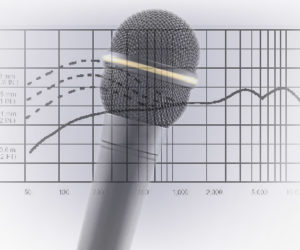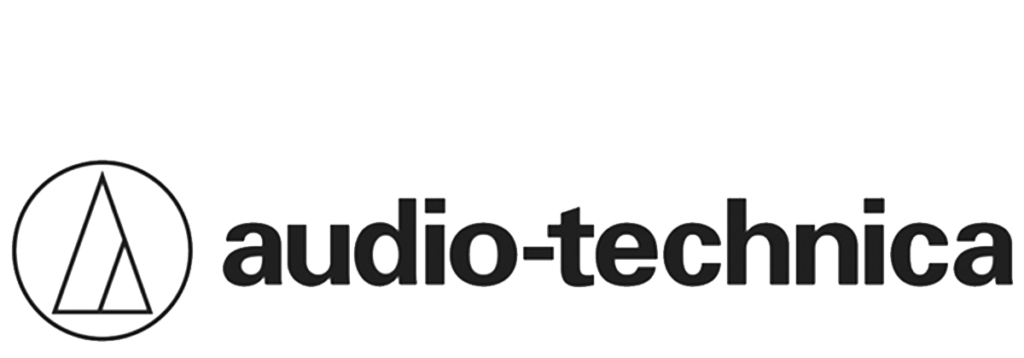Gifting & Getting The Job Done
Mixing sound is just one of the tasks that the sound ministry is charged with. You could also find people who are thrilled to do a good job of running the tape duplicators after each service. Others might enjoy fixing broken mic cables. Still others might be happy setting up the stage every Saturday night.
Perhaps there’s a self-employed someone who could carve out some time to set the stage or run essential weekday errands. Someone with a theatrical background might enjoy serving as a stage manager, a runner, or in some other role. If your pastor has a daily or weekly radio program, someone must learn to use your nonlinear editing software to edit those programs.
If you identify all the tasks that need to be accomplished during a week, and then spread them out over a handful of people, you should find that the job can get done with excellence and without anyone getting overly stressed.
In a large church, you’ll find a trained individual at every post. The FOH desk, monitor desk, lighting desk, in the TV control room, at the video projection desk, all require trained technicians. Still, in the majority of churches, one person may serve all of those roles simultaneously.
The best idea is to cross-train everyone who becomes part of the tech support ministry. The lighting guy should at least be able to get sound out of the system, and the audio guy should at least be able to get the stage lights up and running if needed. (Editor’s note: Which one do you suspect will do a better job?)
People need a weekend off. People get sick. Cars break down in transit. Your staff needs to be prepared to help out as needed, in season and out of season.
Why Train The Team?
We must recognize that there’s a great disparity between the tech support team and the worship team in most churches.
Think about it. Every worship team member, who sings or plays, has inevitably studied music at sometime in his or her life. Even if they are self-taught, they’ve invested their time and managed to learn how to play. North American culture has given us easy access to musical training. Most public schools have some form of music program.
I began to play music when I was in elementary school, played in various music groups all the way through college, and made my living playing in bands until I was thirty years old. It was only after I got my music degree that I quit playing music for a living.
Even if we didn’t pursue music as our lifelong ambition, our studies helped us in numerous ways.
In contrast, the tools or programs to learn how to run sound, or the stage lights, or work with video hasn’t had the same kind of easy access, at least not until very recently. After all, in school, I played a saxophone. I didn’t need a sound system. Maybe you played in the brass section, and they really didn’t need a sound system either.
So, is it fair to compare the talents of a stage full of trained musicians and singers with that of a beginning audio student? No, this is an unfair comparison or expectation.
In real life however, that is what many churches do every week. Predictably and unfortunately, some get frustrated and lose their cool in the process. Training your crew also helps to strengthen their bond as friends and teammates. It can even enhance their self-esteem as individuals, giving them more confidence.
Where To Find Training
Churches all across the world are crying out for trained sound technicians. Strangely, only a very small percentage of these churches are willing to pay for that training. That’s one very clear reason you rarely see such training opportunities.
If you’re a eager student of audio, reasonably certain that you have your facts straight, and you believe you are ready to start training others, then do what all the rest of us who have trained others in audio have done.
Put together an outline to clearly and logically organize the materials and dig into the resource materials to gather your supporting information. Then gather up your courage and go for it.
I choose to organize the material according to signal flow. That’s an intentional approach. Understanding signal flow logic is key. When I’m teaching someone to connect an amplifier, for example, and I see them connect the speaker cable first to the speaker, and then to the amp, I have them disconnect both ends and do it over again.
Obviously, this makes no difference to the signal itself and, because it’s an AC signal, it constantly reverses directions. In general, as you already know, audio signal flows directionally from the amplifier to the speaker.
One day, years after they’ve stopped calling me nasty names, they’re going to run into an exciting moment when five minutes before the downbeat of their Christmas Cantata, with 2,000 people out in the audience, their sound system stops working.
Suddenly, the success of the event falls squarely on their shoulders and rests in any audio team’s to troubleshoot and resolve the problem in a timely manner. If the concept of signal flow logic is firmly ingrained into their thinking, they’ll be able to rest in their knowledge and resolve the problem quickly and efficiently.
Once, I had the great pleasure of visiting with Bill Johnson, Chief Audio Engineer for Kenneth Copeland Ministries. As we were touring the facilities at Eagle Mountain Church, he shared with me that they require their tech support volunteers to attend a training session once a month. Through a simple test, the audio team is divided into beginning, intermediate, and advanced groups. The classes are taught by technical support staff. That is so cool.
Ultimately, it helps bring the entire crew onto the same page, and because it keeps everyone growing in their knowledge, so they can do an ever better job of supporting the technical needs of the worship services.
Source Knowledge
The Internet is overflowing with information about audio. Some of it is even correct. If you’ve been in audio for some time and you’re reasonably confident in your knowledge, then go ahead and explore. Just be alert for the occasional piece of audio mythology. If you’re a beginning student, I encourage you to stick to the main information highway.
We strive to make our own ChurchSoundcheck.com a mythology free zone. Obviously, ProSoundWeb.com focuses on performance audio technology and works hard to ensure accuracy.
Believe it or not, you can trust comments that you may read posted on web sites by the major manufacturers. For example, you’ll find accurate, reliable information on sites by Rane, Crown, EAW, QSC, Allen & Heath, dbx, and others.
I also suggest looking at the training courses from Syn-Aud-Con.
Wake Up & Smell The Silicone
Finally, I’d like to leave you with a wakeup call. Have you stopped growing in your technical knowledge? Have you stayed on top of the DSP revolution in regard to digital consoles, or are you letting digital know-how pass you by?
Even worse, are you a know-it-all? Are you the type of individual who figures that they know all there is to know about audio, or lighting, or video?
Let me suggest to you that one day, in the not too distant future, you’re going to find yourself left in the digital dust of some young kid who just figured out how cool audio is, who has never even touched an analog audio console and been raised on digital.
There’s so much new stuff in play these days. It is impossible to stay on top of every technological change, in every equipment category, but that’s no reason to roll over and ignore the digital revolution.
It’s cool to learn from the past, to apply micing techniques learned from the masters, for example. It’s not cool to have been mixing at your church for the past thirty years and to walk up to a new console one day only to discover that you can’t even locate the ON switch.
If you’re not achieving the level of technical excellence that you aspire to each week, maybe it’s not the gear. A simple lack of knowledge could be standing between your audio education goals and the reality you live with.
Fortunately,, technical stuff can be taught and technical savvy learned, but you must work at it. Likewise, your volunteers and tech support staff must work at it.
Stay on task. Read. Study, study, study. Attend trade shows, workshops and seminars. Subscribe to trade magazines. Buy technical books. Read and study some more. After that, go teach someone else.





